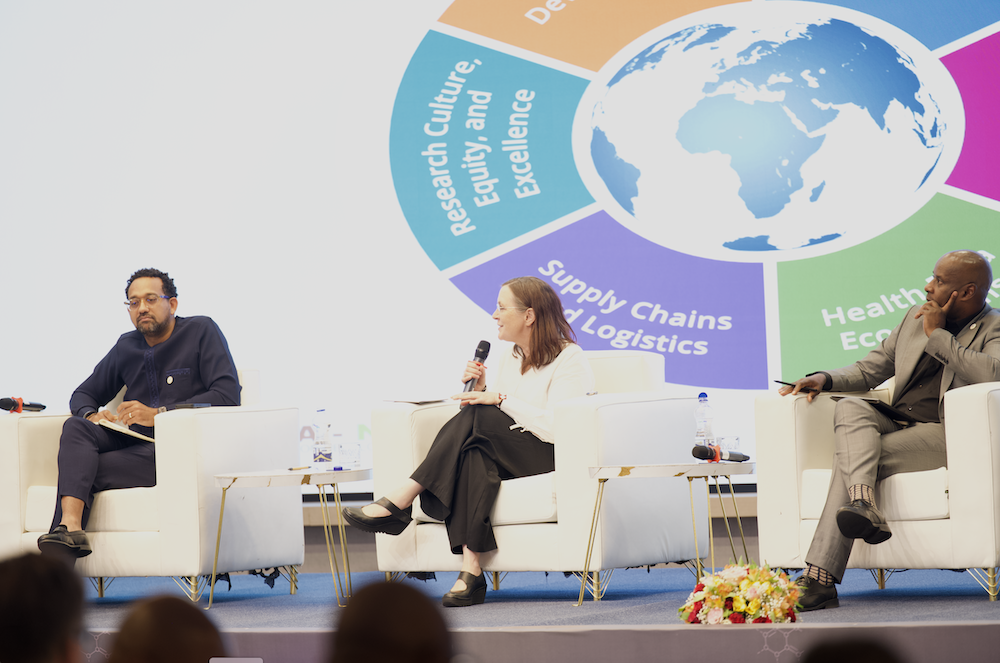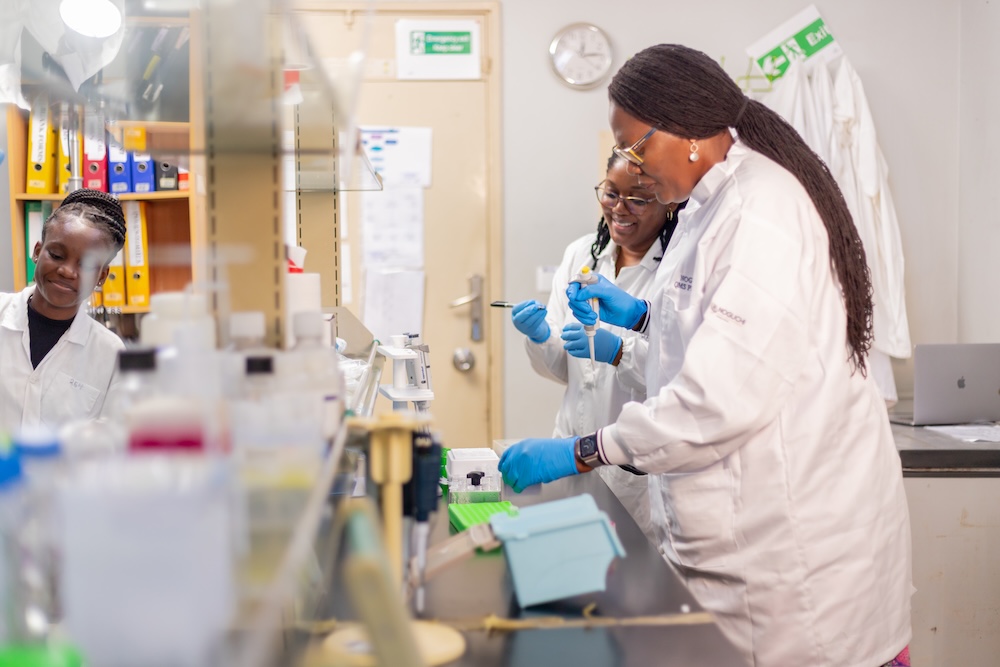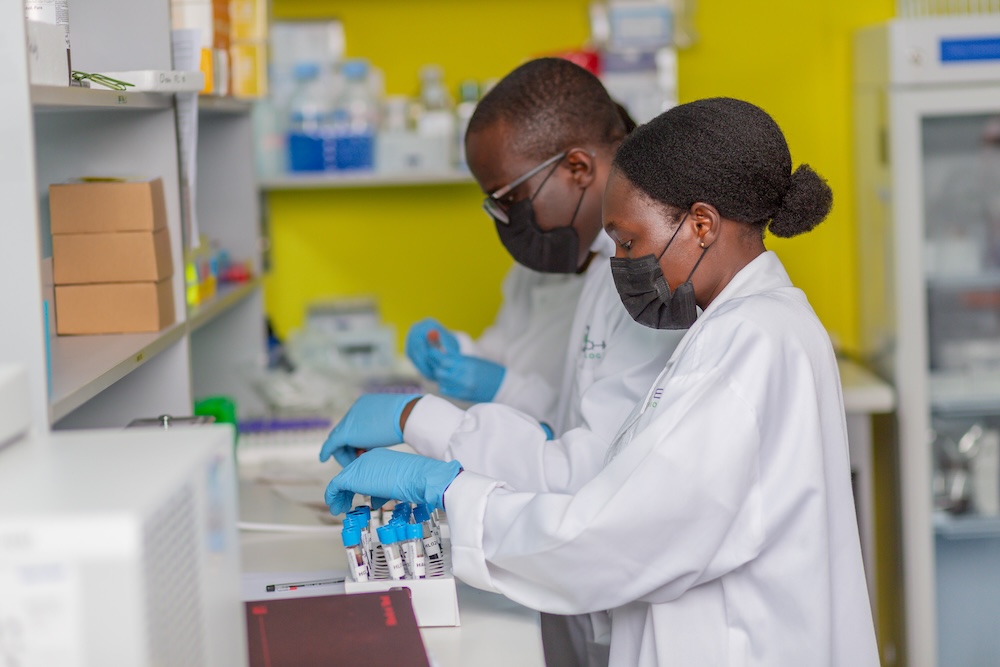
Media Centre
SFA Foundation’s CEO warns of “silent epidemic of non-communicable diseases” threatening Africa
Monday, June 12, 2023

In an interview released today, Professor Tom Kariuki, Chief Executive Officer of the pan-African Science for Africa Foundation, warned that a “silent epidemic of non-communicable diseases” such as cancer and cardiovascular disease are now significantly present in African nations and pose a serious threat to the health of its people.
Talking with Taylor & Francis’ Head of Content, Martin Wilson, as part of the F1000 in-conversation series that explores the benefits of open science and research globally, Kariuki linked the rise of non-communicable disease in Africa to lifestyle changes, and increased pollution, and other aetiologies/causes of non-communicable diseases:
“There is a very silent epidemic of non-communicable diseases: cancer, cardiovascular diseases, strokes, mental health and everything related to that. One of the challenges where governments are failing their citizens is that they are slow to focus on interventions, such as how we quickly screen people, how we create awareness of the connection between these diseases with lifestyle, changing diets and the effects of climate change. And another frustration is the lack of awareness that if you have big cities that are emerging across the continent that are becoming more and more crowded and polluted, that is trouble. For example, how pollution is already driving the rise of non-communicable diseases.”
In the wide-ranging discussion, Kariuki emphasised the ongoing threat of infectious diseases to Africans as well as the dangers of climate change to human health, economies and biodiversity in Africa. Referring to the drought in Somalia in 2022, Kariuki commented:
“I don’t think in my lifetime I’ve seen a scenario where you have people, their livestock and wildlife die concurrently. […] That’s an area which is an emergency. I have to say that the governments have a huge appreciation of this climate emergency, but of course, they need to think more about the mitigations, adaptations and resilience of communities.”
Throughout the discussion, Kariuki underscored the need to invest in strong science and research infrastructure and its use in policy and decision making across the continent to address these issues. Kariuki points to declarations by member states through the African Union to spend at least 1% of their budgets on research, the actualisation has been slow.
One cross-continent solution Professor Kariuki and the SFA Foundation promotes is through projects such as Open Research Africa, a newly launched open research publishing platform established by the F1000 in partnership with the SFA, which enables African researchers to publish all of their research findings and data openly, free to read and use so that it “can quickly be driven into evidence and transformed all the way into decision making.”
Science by African researchers that is open and accessible to all Africans and benefits peoples globally, stimulated by the ambitions of young Africans, is key to Kariuki’s vision for the future of science in Africa:
“This is a continent that is very much driven by young people. If you asked them what are their challenges, they’d say three things: decent education where one attains at least 12 years of basic schooling, good health and they need opportunities... they’ll do the rest: they’ll pursue their livelihoods, support their own families and create their own innovations […] What warms my heart is always to engage with these young people who are now positioning themselves as leaders in their own right. I also look at the quality and the quantity of science that is coming out of the networks that [Science for Africa Foundation] has supported across the continent. There are thousands of scientists that are directly or indirectly involved with us across the continent and our footprint is everywhere.”
For more information
To listen to the podcast, please visit:
- In Conversation: Tom Kariuki, Science for Africa Foundation - Part 1: https://youtu.be/2yl1xuF0wC4
- In Conversation: Tom Kariuki, Science for Africa Foundation - Part 2: https://youtu.be/v0JcT-61Ue8
About F1000
F1000 fosters a culture of innovation to accelerate the reach of knowledge and put it in the hands of those who will shape the future. We provide open research publishing solutions and services to organizations such as the European Commission, Wellcome, and the Bill & Melinda Gates Foundation, as well as directly to researchers through our own publishing platform, F1000Research. F1000 is wholly owned by the Taylor & Francis Group, an Informa Group company.
Website: https://f1000.com/ | Twitter: @F1000
About the SFA Foundation
The Science for Africa Foundation is a pan-African, non-profit and public charity organisation that supports, strengthens, and promotes science and innovation in Africa. The SFA Foundation serves the African research ecosystem by funding excellent ideas in research and innovation; enabling interdisciplinary collaborations and building and reinforcing environments that are conducive for scientists to thrive and produce quality research that generates new, locally relevant knowledge.
Join us: https://scienceforafrica.foundation/ I Twitter: @SciforAfrica I Instagram and LinkedIn: @Science for Africa Foundation



